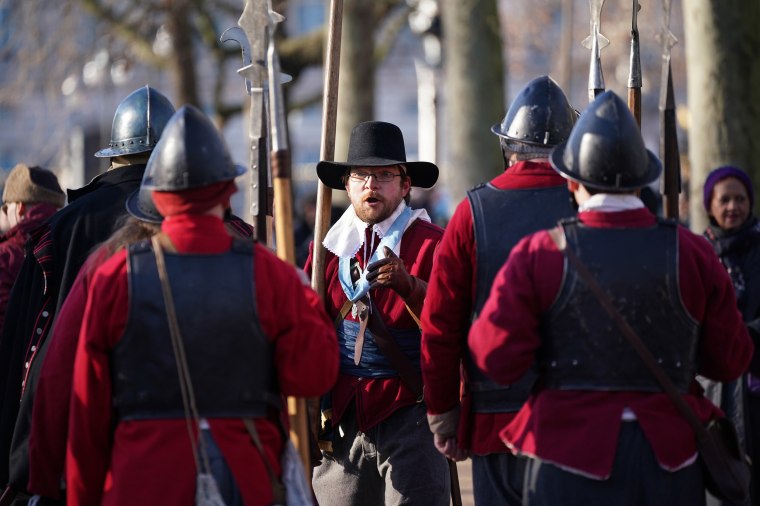LONDON — Some 250 men and women holding spears and muskets solemnly walked to the slow beat of a drum in the shadow of Buckingham Palace.
Wearing brightly colored costumes and ranging in age from toddlers to older adults, the marchers lined up by regiment and shouted, “Long live the king!”
The King’s Army, a re-enactors society, on Sunday commemorated the execution of King Charles I, who was beheaded Jan. 30, 1649, after falling out with Parliament.
The group is a living — and marching — symbol of the connection so many here feel to the monarchy. It is also a reminder that the British royal family, one of the world’s most enduring, has a tumultuous history. While Queen Elizabeth II, who this year marks 70 years on the throne, is hardly threatened like Charles I was nearly 400 years ago, today's monarchy does face its own set of era-defining challenges.
Among the marchers, the institution's central importance was never in doubt.
“I, like many of us, support the monarchy, and it’s amazing doing this in front of the palace,” said Megan Hanna, 35, who has been part of the King’s Army for 10 years.
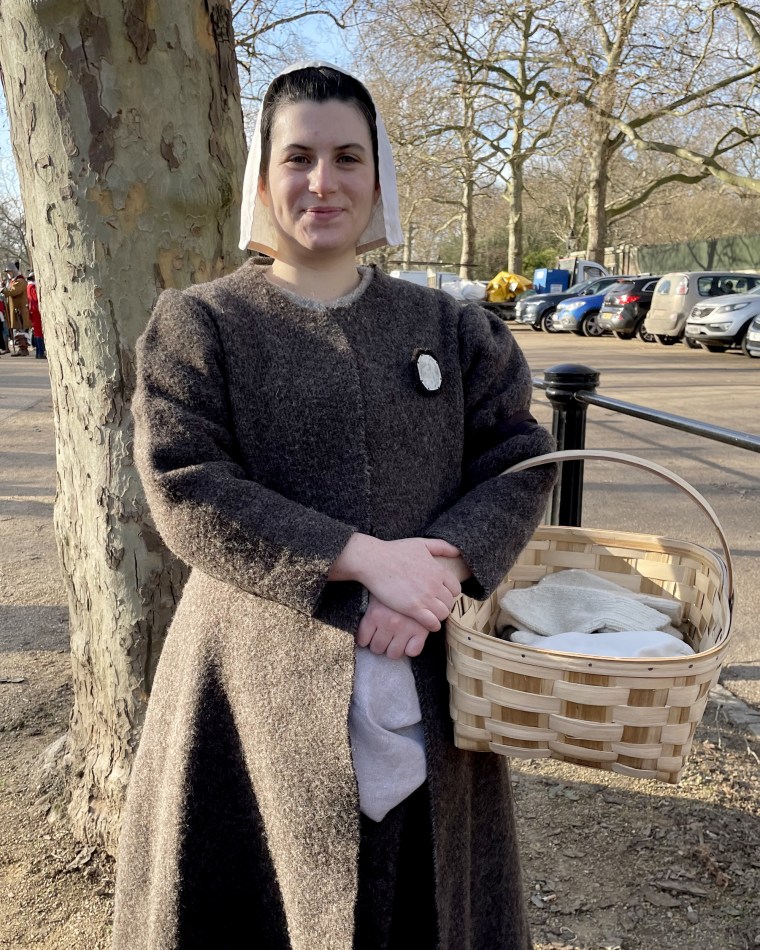
“Things do seem to be changing,” Hanna said of today's monarchy.
Anna Tierney, who first took part in re-enactments as an infant with her parents, agreed.
The 30-year-old lives in Bedfordshire, just north of London, and sews her own historical clothing — a mix of linen undergarments, tweed vests and felt jackets.
“We’ve been spoiled by having this queen, and she’s amazing,” Hanna added, surrounded by fellow marchers holding muskets, pikes and other 17th-century-style weaponry.
And there's the rub.
The queen’s anniversary, known as the Platinum Jubilee, serves to emphasize not only the queen's long reign but her advanced age, 95. It also comes after a bruising few years for the royal family, with the queen’s grandson Prince Harry and his wife, Meghan, stepping away from their roles as a senior royals and son Prince Andrew facing a U.S. civil sexual abuse lawsuit.
Full coverage: Latest news and updates on Queen Elizabeth II
“When you look at the monarchy, it’s in a little bit of peril and not as strong as it would like it to be going into this celebratory year,” said Thomas Mace-Archer-Mills, founder of the British Monarchist Society.
It isn’t that the British public and much of the Commonwealth — a group of mostly former colonies that the queen heads — have fallen out of love with the nonagenarian monarch. On the contrary, viewed as down-to-earth and hardworking, albeit mysterious, Elizabeth is very popular.
The key question is whether Elizabeth’s oldest son and heir to the throne, Charles, will be greeted with the same respect and affection the queen enjoys.
“We need to look at whether the public supports the institution or if the institution is riding the coattails of the queen,” Mace-Archer-Mills said. “At the moment, it seems that the affinity and love that the public have stems from Her Majesty.”
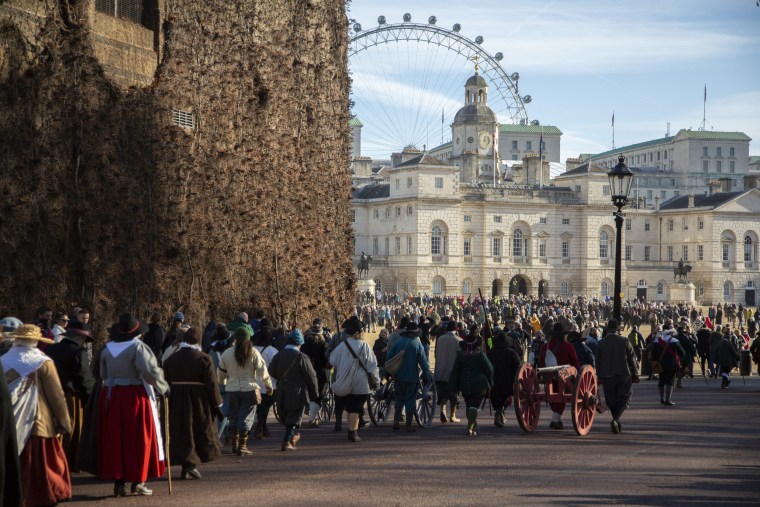
The queen’s third child, Andrew, also known as the Duke of York, is at the heart of the monarchy’s current troubles. He was stripped of his military affiliations and royal patronages in January. He will no longer be referred to as “His Royal Highness” and will fight the U.S. sex abuse lawsuit “as a private citizen,” according to Buckingham Palace.
A longtime friend of convicted sex offender Jeffrey Epstein, Andrew was forced in 2019 to step back from his royal duties. January’s move by the palace put further distance between the monarchy and Andrew as he defends himself from the accusations by one of Epstein’s accusers, Virginia Giuffre. She alleges that Epstein and Ghislaine Maxwell trafficked her and forced her to have sex with Andrew, now 61, in the 1990s.
He has repeatedly denied the allegations and that he has ever met Giuffre, who was 17 at the time.
Meanwhile, Harry and Meghan announced their decision to step down from their roles as senior royals in January 2020, amid accusations of racism that the family has denied. They moved to California and from there have lobbed accusations of racism at the U.K. media and slammed the monarchy’s inability to protect them.
Despite these and other travails, the queen is the third-most admired woman in the world, according to a YouGov survey released in December that interviewed people in 38 countries.
After so long on the throne, that’s no surprise, according to Philip Williamson, a historian of 20th-century British politics at Durham University.
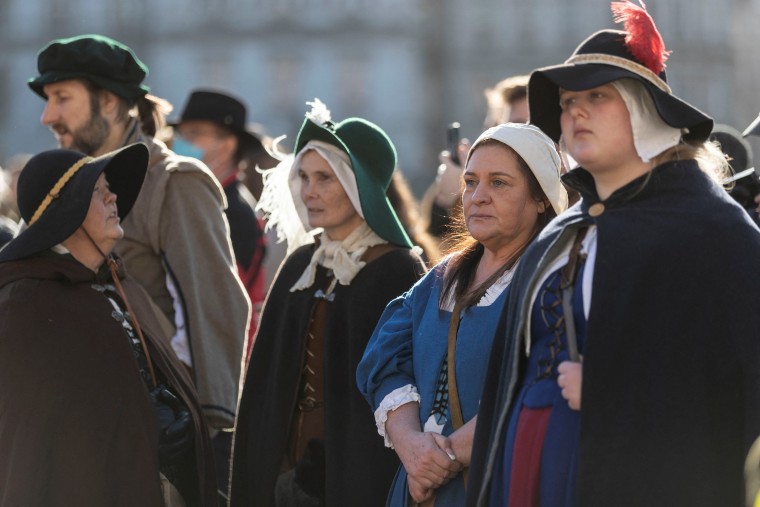
“Someone who’s been a public figure for so long and is taken to represent various desirable values is bound to command a degree of reverence,” Williamson said.
Though the queen assumed the throne in February 1952 after the death of her father, King George VI, Britain’s official celebrations are scheduled to take place around the time she was coronated in June, with plenty of pomp and circumstance to go around.
There will be an extra national holiday for the occasion along with other events across the U.K. throughout the year.
Excitement about the royal family is exactly what the monarchy is hoping the jubilee will inspire, according to Laura Clancy, the author of “Running the Family Firm: How the Monarchy Manages Its Image and Our Money” and a lecturer at Lancaster University.
“There is this balance of visibility and invisibility,” Clancy said of the royal family. “Funding or wealth, those are the things they might want to keep invisible. On the other hand, they’ve got other things that are hypervisible — like ceremonies, weddings or babies — and the jubilee is probably the biggest one of those. It’s about celebrating the monarchy. And it means that the invisibility of these other things can continue.”
While a clear majority in the U.K. still supports the queen despite the royal family’s troubles, there has been a small but significant shift in support for the monarchy over the last year. A YouGov analysis released in May showed that among 18- to 24-year-olds polled, 41 percent would prefer an elected head of state to a monarch. That’s a big change from 2019, when that number stood at 26 percent.
This questioning of the monarchy’s relevance by younger people comes during this sensitive time for the family, and it’s tough to predict how it will play out in the coming years, Clancy said.
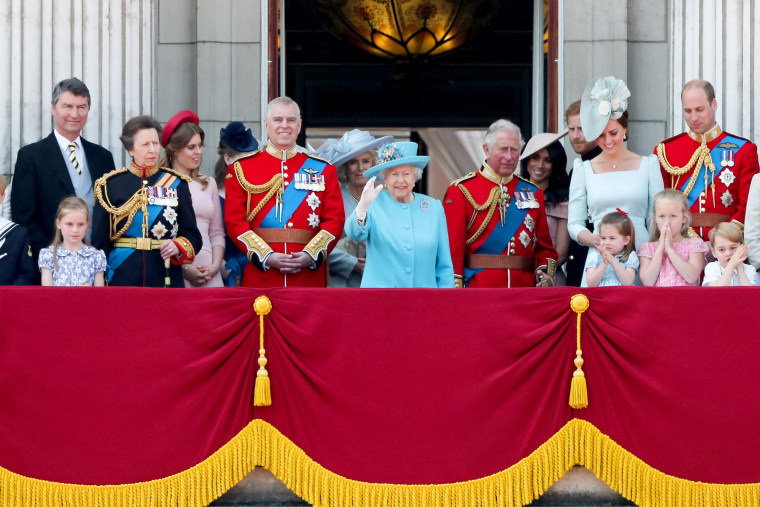
“Harry and Meghan raised the important questions about racism and sexism. Then you’ve got Andrew, who is hammering home the sexism issue, and then the queen dying will be a pivotal point,” Clancy said. “Having a king will be a very different image. Whether we are ready for complete constitutional upheaval and whether people will accept that is another question.”
Despite what looks like a drop in support for the queen among young people, polls and scholars agree that for the moment, at least, the monarchy is going nowhere. Across society as a whole, more than 61 percent of people polled said the U.K. should continue to have a monarchy, according to the YouGov analysis.
“The monarchy gives a sense of stability,” said Steven Fielding, a professor of political history at the University of Nottingham and co-author of “The Churchill Myths.”
“The U.S. has the presidency, and the president is head of state, but they’ve also got more partisan aspects to them,” Fielding said. “The queen is above all that, almost like a god-like figure. There is a kind of mythology around monarchy.”
